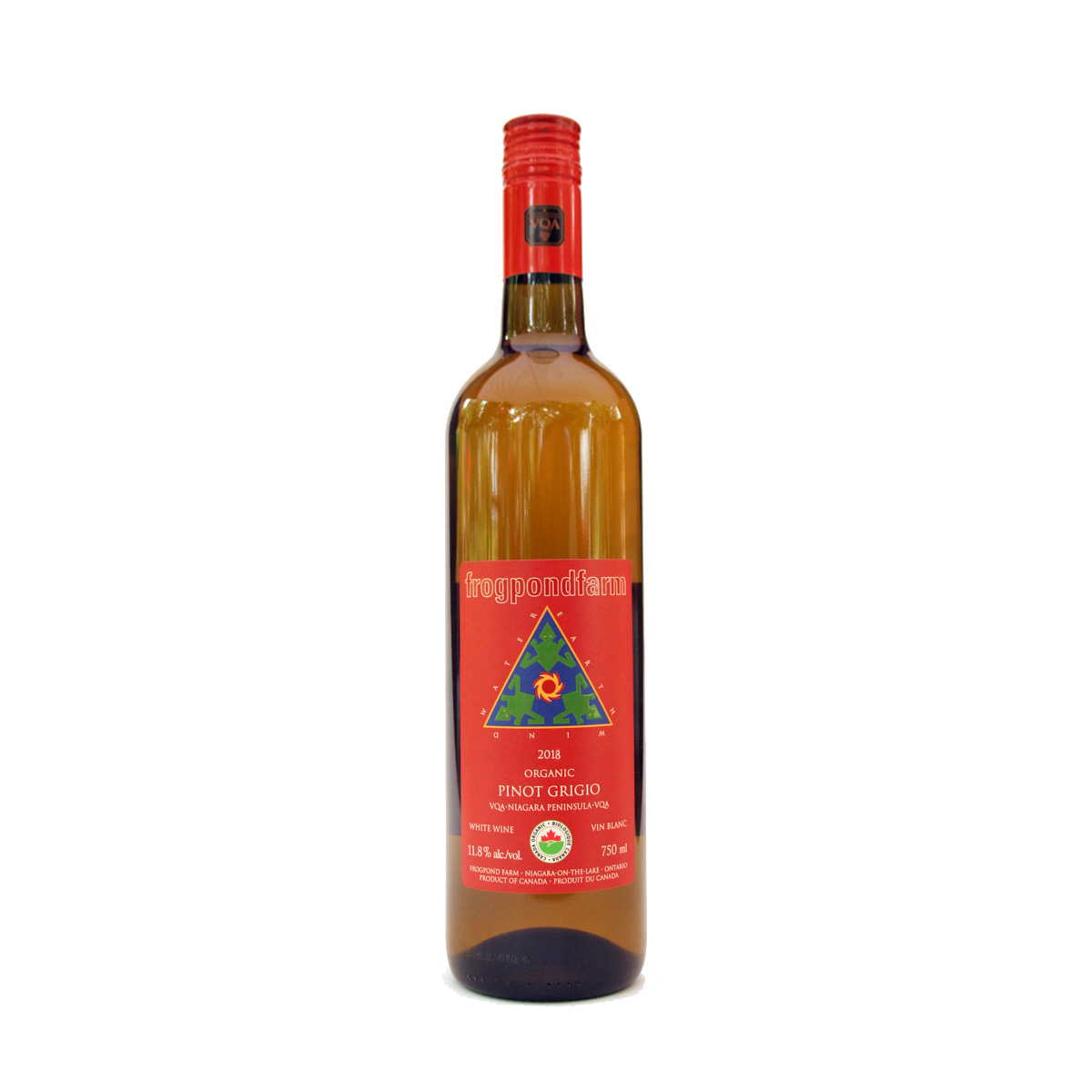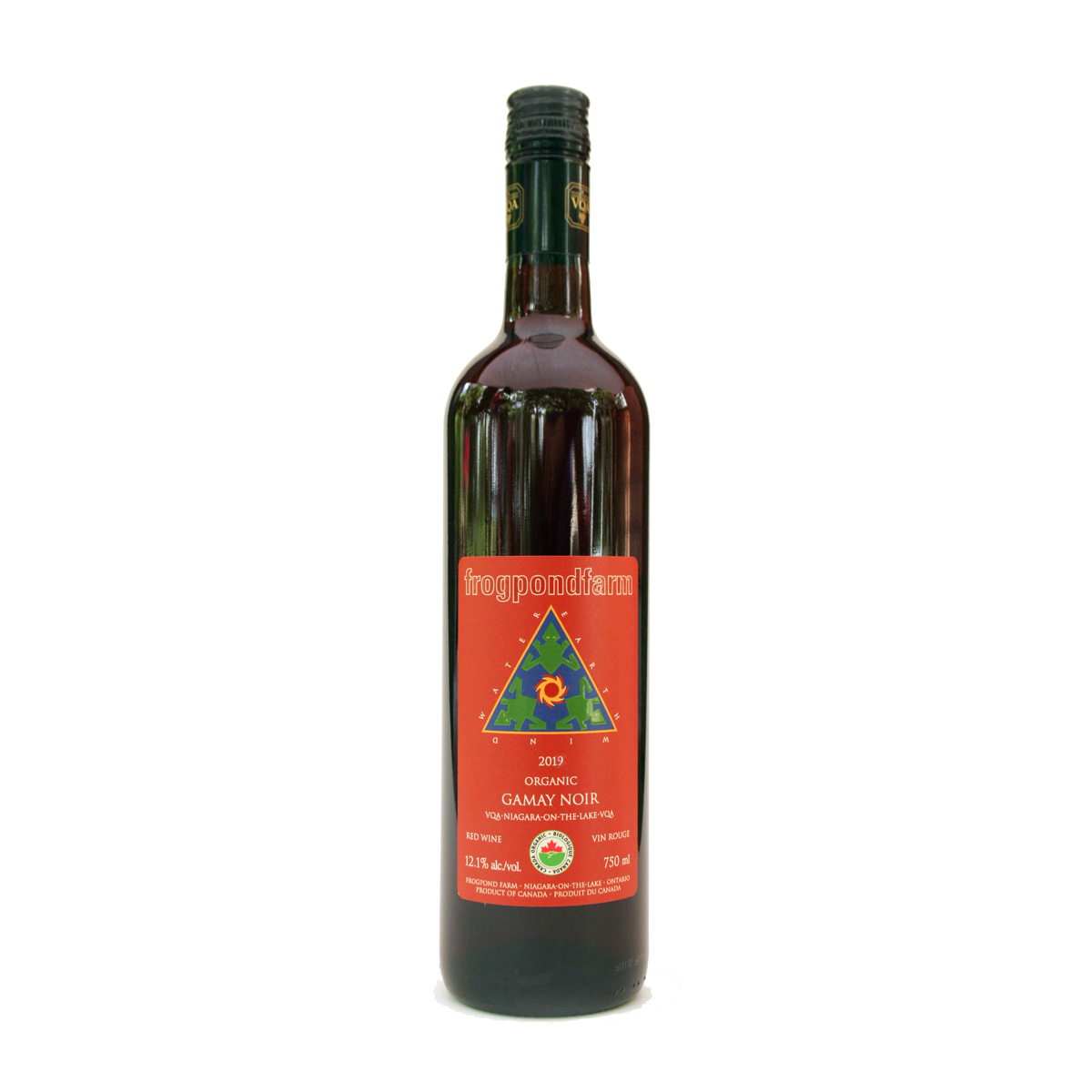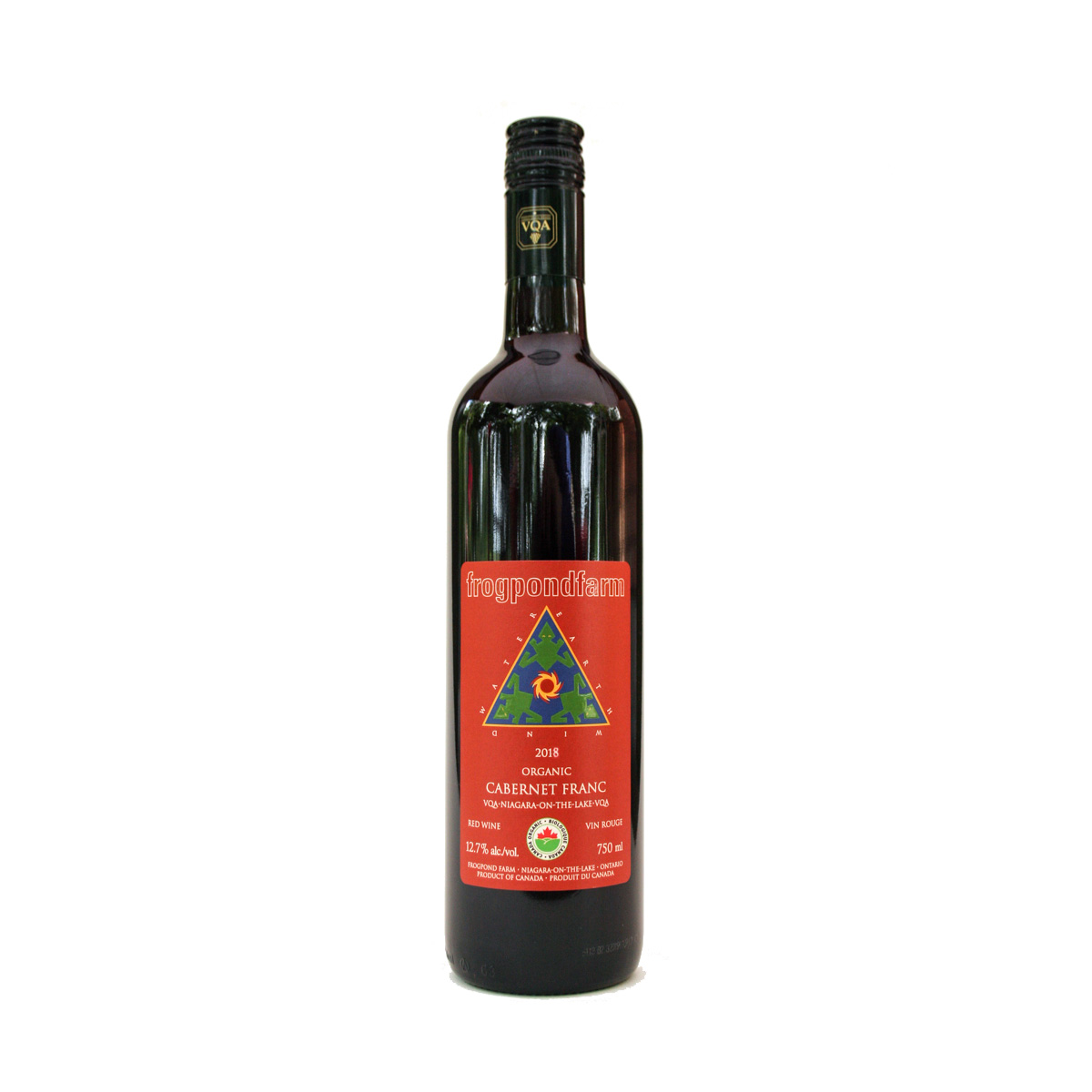With the return of warm summer weather, it’s time to sip something light and refreshing. Why not our Organic Rosé?
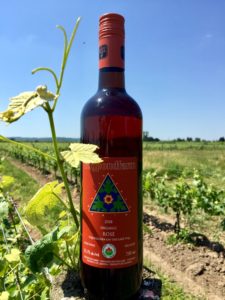
If you are under the impression that Rosé wines are sweet, cloying and only for the ladies … think again!
The days of sweet, blush wines are passé.
What are Rosé wines like?
Rosé wines today range from bone dry to slightly off-dry. They can be made from a variety of red grapes, in a variety of climates, in a range of styles (some even have oak contact), and in a range of colour from salmon pink to shades of light ruby.
Rosé happens to be the perfect wine for patio sipping or a backyard barbecue.
Rosé pairs well with …
- Salads (chicken, salade niçoise)
- Salmon
- Fish tacos
- Eggs
- Charcuterie
- Soft cheeses
- BBQ veggie skewers
- BBQ chicken skewers
Just remember to think about which grape variety went into the making of the Rosé wine as each varietal has its own flavour characteristics (and intensity), acidity level and structure. Then try to pair your food to that grape variety.
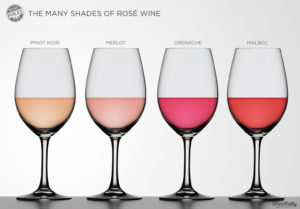
(Image courtesy of Wine Folly)
In Ontario, some varietals that create Rosé wines are Pinot Noir, Gamay Noir, Cabernet Franc, Syrah, Merlot, Pinot Gris and a small percentage of white wine grapes.
However, that is not to say that Rosé wine is a blended wine using finished red and white wines … that’s cheating!
How are Rosé wines made?
You start with red wine grapes and then do one of the following:
- limited skin contact (maceration)
- direct pressing
- saignée (or bleeding) method
With the first method, limited skin contact, the grapes are crushed and allowed to stay in contact with the skins (where the colour pigments are found), macerating, for anywhere between a few hours to 2 days. The longer the skins are in contact with the juice the deeper the colour and the richer the flavours of the finished wine. The juice is then racked off the skins and fermentation begins. This method yields a range of Rosé wine styles depending on grape variety and the length of skin contact.
Direct pressing is similar to the first method but instead of allowing the juice to be first in contact with the skins for a given time, the grapes are pressed right away to remove the skins. There is just a hint of colour left in the juice so this method yields the lightest coloured Rosés with a citrus and strawberry flavour profile.
The saignée method begins with making red wine in the usual way. But early in the maceration process, when skins and juice are in contact and fermentation begins, some juice is “bled” from the tank leaving less juice and more skins (greater skin-to-juice ratio) to actually concentrate or intensify the red wine that will be fermented. The juice which has been “bled off” is then fermented as Rosé. This method yields a richer style Rosé wine.
Frogpond Farm Organic Rosé
Our Organic Rosé is made from 100% Cabernet Franc grapes. Over time we have used both limited skin contact and saignée methods.
The 2018 vintage offers delicate fruit flavours like melon, grapefruit and strawberries, accented by a hint of lemon grass.
At $16.95 it’s a steal! Shop now


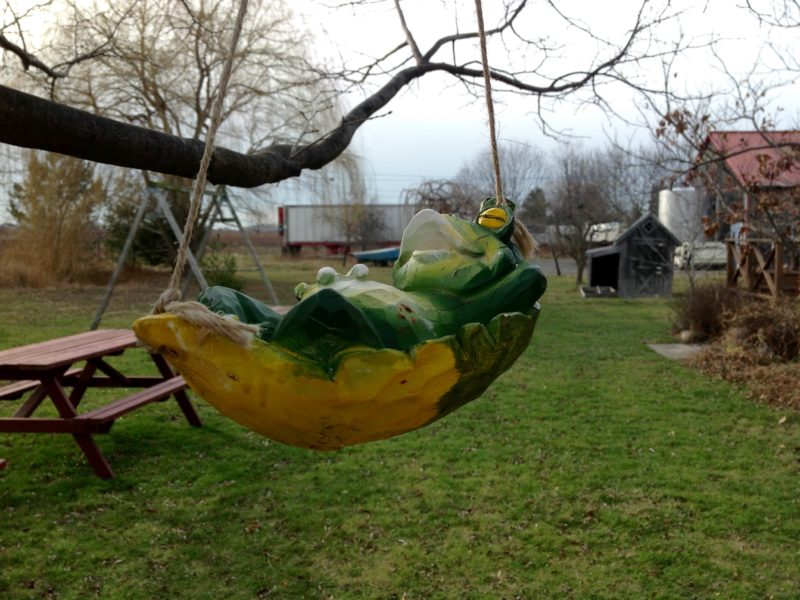
 Frog Blog ~Are You a Wine Trendsetter?
Frog Blog ~Are You a Wine Trendsetter?
